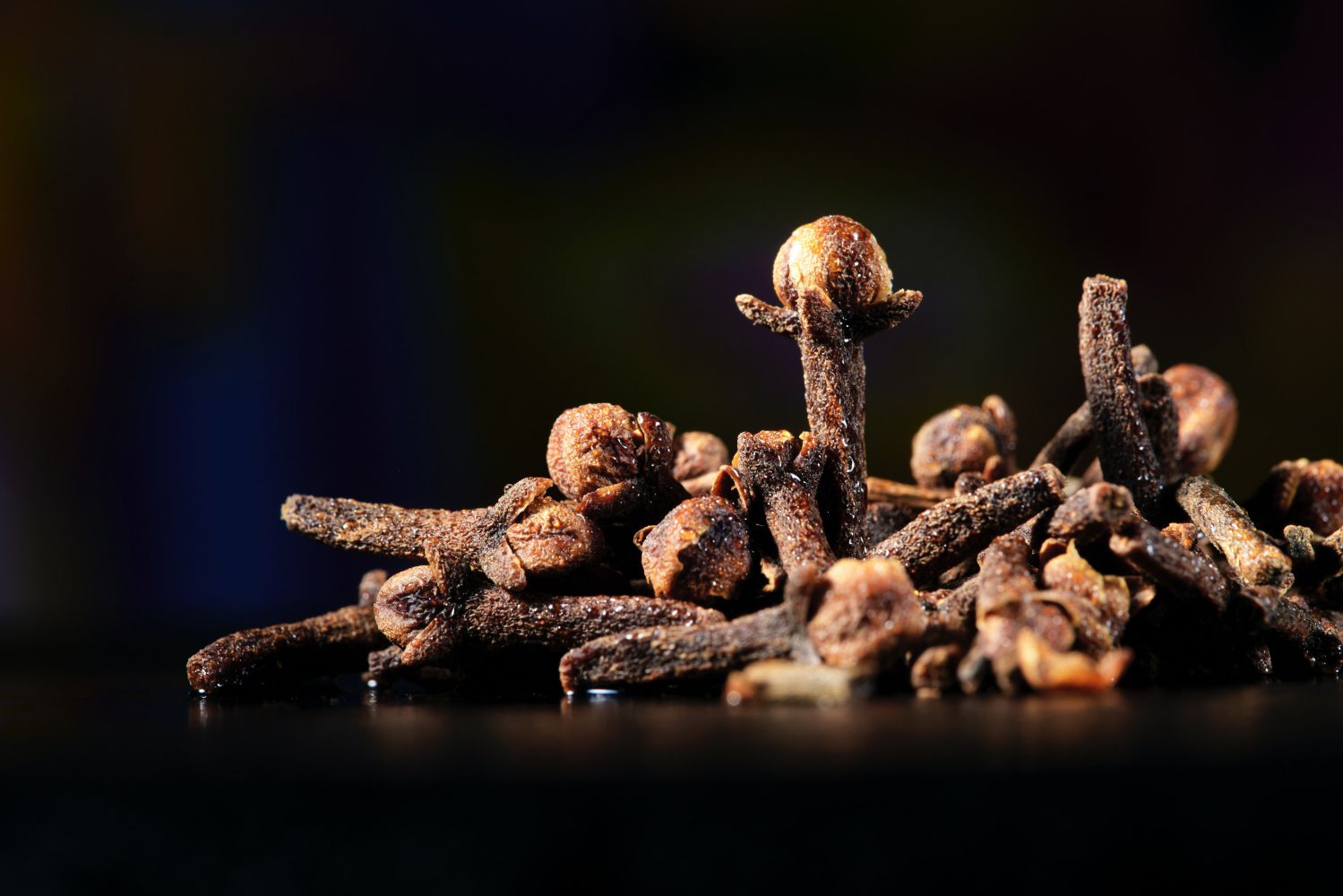
Cloves, chosen as the Medicinal Plant of the Year in 2010, impress with their positive effects and versatile use in the kitchen. Discover more about the properties and culinary applications of cloves.
Natural Splendor on the Tree
On the clove tree, which can grow up to 10 meters high, the precious cloves develop as buds. Their intense aroma is at its h2est just before harvesting. These valuable cloves thrive in countries like Madagascar, Indonesia, Sri Lanka, and South America, where they are carefully harvested.
Diverse Effects
The healing power of cloves was already known to the ancient Egyptians and Romans. In Chinese cuisine and medicine, cloves have always been valued. According to Dr. Bharat B. Aggarwal, cloves can have pain-relieving and antibacterial effects, especially for toothaches. They promote circulation and aid protein digestion. Cloves are perfect for winter, warming the body and soul – a Kapha-reducing effect, as described by Petra Kühne.
Cloves are associated with Mars energy and can reduce excess iron, as well as help against parasites, bacteria, and fungi. They regulate hormone balance and water retention.
Cloves in the Kitchen
The taste of cloves is described by Petra Kühne as sharp and resolving. We're familiar with the warming effect of cloves, especially in chai tea. However, cloves also work well in many other dishes: compotes, sauerkraut, red cabbage, and Christmas cookies all benefit from the intense aroma of cloves. Use them sparingly to bring out the taste optimally.
With their warm aroma, cloves add a special touch to many dishes and bring additional positive effects.

